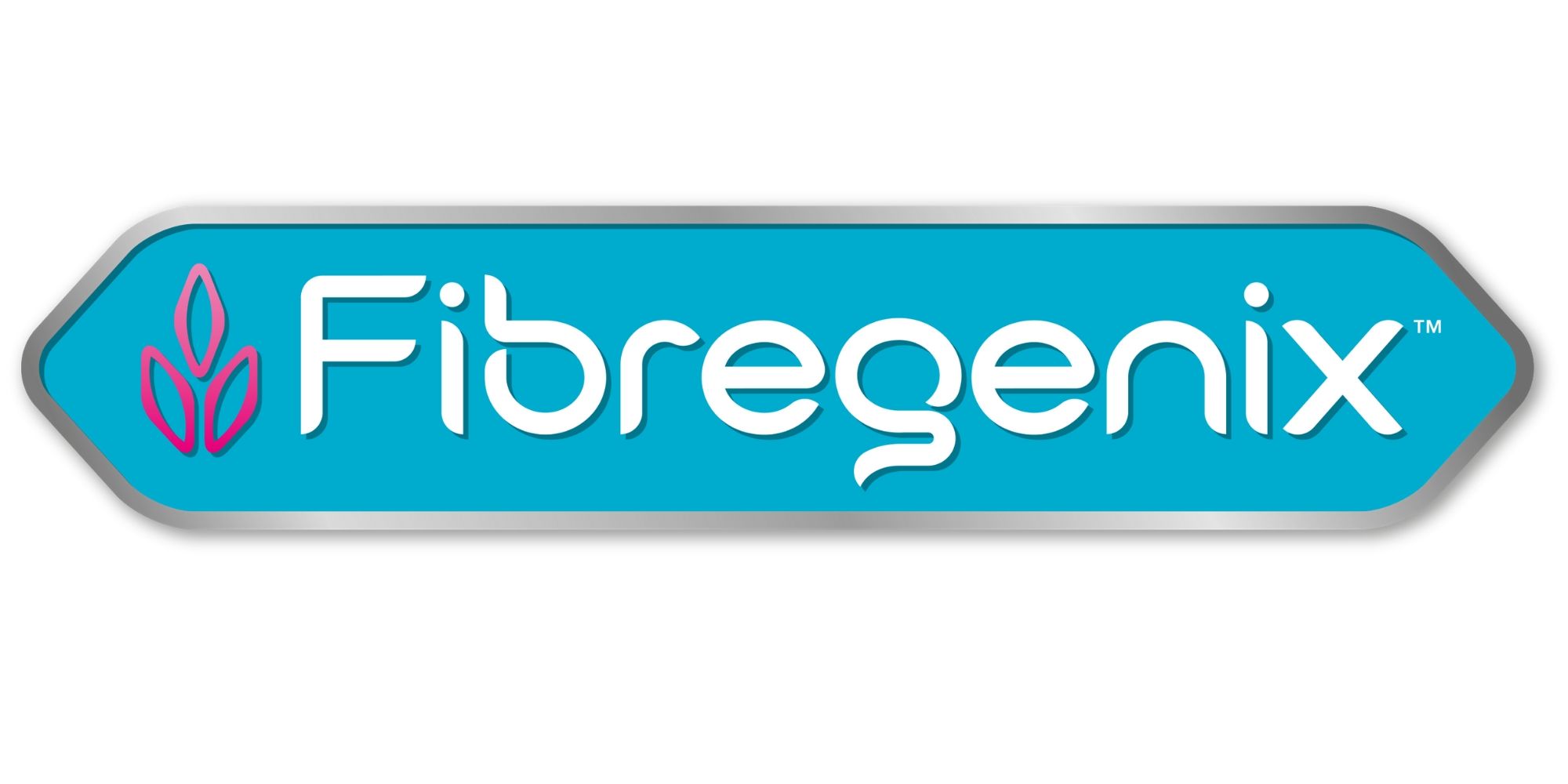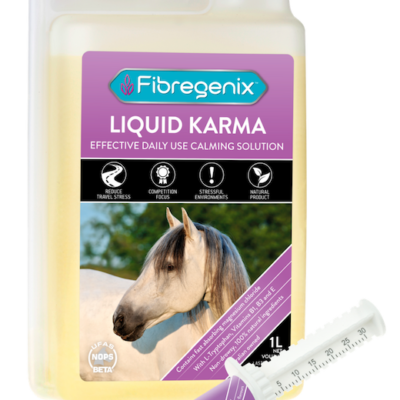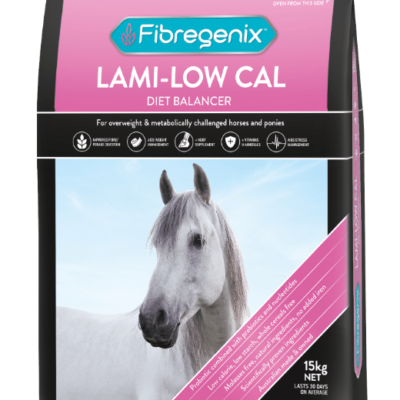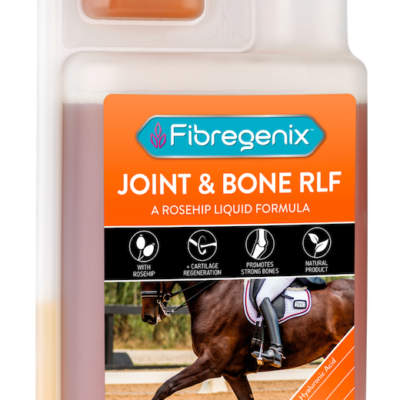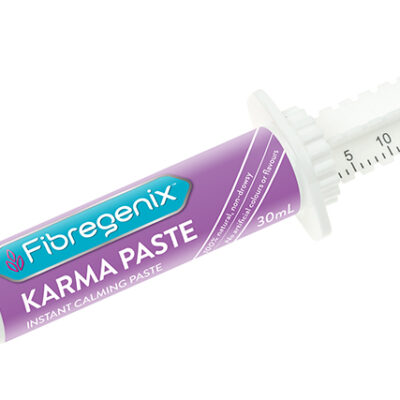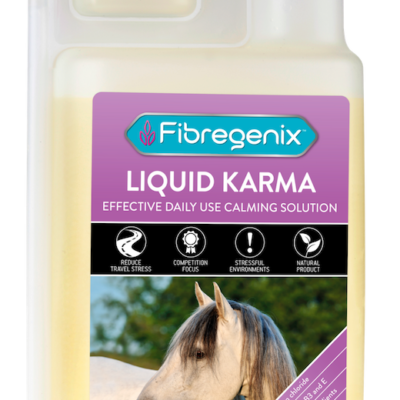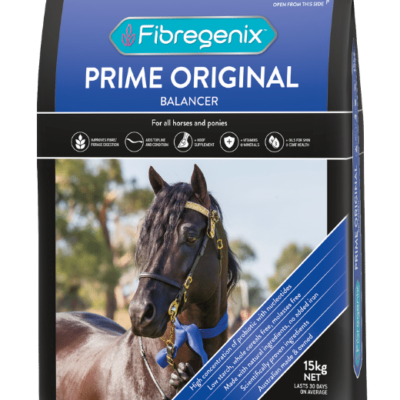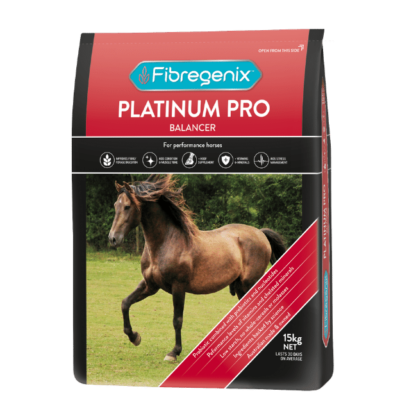
Caroline Noble & her mare fed on Platinum Pro
Feeding the endurance horse – when nutrition is paramount
In many equine sports, it can be possible to get away without dotting all the I’s and crossing all the t’s in preparing the horse. But there is nowhere to hide at the top of endurance racing. When exercising at the limit, nutrition is one of the fundamentals of performance. Feeding the endurance horse is highly specific. From the overall forage to concentrate ratio down to the details of electrolyte balance. The speeds at which elite endurance horses travel when racing means their muscles work aerobically most of the time. It’s only when tackling steep hills or in the sprint to the line that they go anaerobic. Muscles are most efficient when working aerobically, and to do this a horse can “burn” either fat (lipid) or glycogen. The dietary source of the lipids is either volatile fatty acids from the digestion of fibre or the oil supplied in the diet.
The Importance of Fibre when feeding the endurance horse.
Fibre is probably the most important nutrient (after water) for the equine endurance athlete. The digestion of fibre takes place slowly. The energy it releases is produced more evenly and for longer after the end of the meal. This means you get more ‘kilometres per litre’. Additionally, fibre seems to bind water as it passes through the gut, acting as a fluid and electrolyte reservoir.
Fatigue and diet
Notwithstanding poor training, when feeding the endurance horse the onset of fatigue can be affected by nutrition. Fatigue is measured not only by time but at the vet checks during a race. If the horse’s heart rate exceeds 64bpm after 2min you are out. Depletion of muscle glycogen stores, combined with insufficient dietary fibre, is one of the main sources of fatigue. So is dehydration. Fluids and electrolytes are lost in sweat and, if not replenished, affect performance markedly.
Feeding the endurance horse
Top tips
- The laws of physics dictate that the power to weight ratio (max power/min weight) will mean faster speeds. However, the reserves an endurance horse calls upon mean that it can’t be unduly thin.
- Energy should come predominately from fibre and oil. Fibre should come not just from forage and some alfalfa. It also can include compounds containing soya hulls and sugar beet pulp. Typically, hard feeds with 6-10% oil are used, but huge amounts will make the horse fat and can affect fibre digestion. It’s not necessary to cut out starch altogether. The horse needs some to maintain muscle glycogen levels, necessary for the “power” work of going up hills or galloping.
- Water and electrolytes are crucial throughout and after a ride.
- If you go slowly on endurance rides, you just need forage and low-energy feed. Horses have evolved to cover long distances like this. It’s only when going at a speed that the extra feed counts.
The role of the Feed Balancer when Feeding the endurance horse
Feed balancers can be a highly useful feedstuff for an endurance horse. They can partially or fully replace any grain feed being fed. Additionally, they’ll provide the vitamins and minerals required on a daily basis. Fibregenix also includes quality digestible protein, fibre and essential fatty acids. So a Fibregenix balancer alleviates the need to feed additional supplements except for electrolytes.
The Fibregenix balancers for feeding the endurance horse
For shorter distances up to 60km, Fibregenix Prime Original is ideal. Fibregenix Platinum Pro suits longer distance racing. This requires an elevated level of vitamins, minerals and essential nutrients such as the key antioxidants, Vitamin E, Vitamin C and selenium. Both balancers contain a natural form of Vitamin E. This powerful antioxidant is essential for the endurance horse that is often under stress. Natural vitamin E has been found to be 5 times more bioavailable than synthetic vitamin E. Platinum Pro also contains a comprehensive blood-building formula which aids oxygen transportation to the working muscles.
Digestive health – a key factor in feeding the endurance horse
Fibregenix Platinum Pro contains 4 key digestive aids to tackle both hindgut and foregut health. Its foregut gut health pack consists of FOS and MOS prebiotics.
FOS Prebiotic
The unique FOS is a short chain of sugar molecules, providing a feed-source for the beneficial gut micro-organisms. Scientific support has proven that this specific FOS may:
-
Positively modify the gut microflora
-
Enhance digestive health
-
Reduce the risk of digestive upsets
-
Reduce putrefactive compound production
-
Strengthen the immune system (GALT)
-
Improve insulin sensitivity in the obese horse.
MOS (Mannanologosaccharides)
With the digestive system already compromised through the stress of competing and travelling, there could be a large population of ‘bad’ bacteria. The ‘good’ bacteria may thrive, but harmful bacteria will still cause an unhealthy gut, negatively affecting the horse’s general health. Platinum Pro’s MOS mimics the cursor that the harmful bacteria bind to on the gut wall. Once the harmful bacteria have bound to the MOS, they can’t be released. So they’re rendered useless and ‘flushed out’ of the digestive system. This promotes the overall health of the digestive system, so the beneficial bacteria can thrive, which ultimately aids weight gain.
Live Yeast probiotic
The hindgut digestive enhancer gut pack in Platinum Pro contains high levels of an equine approved live probiotic yeast. Studies have proven it can double fibre digestibility. This enables fibre to be utilised more efficiently which is ideal when feeding the elite endurance horse. Furthermore, it helps to improve and maintain weight and condition.
Nucleotides
The digestive enhancer pack also include Nucleotides. They’re considered essential nutrients as they’re the building blocks of DNA and RNA. Present in the horse’s natural diet but at low levels, they can’t be stored by the horse. Nucleotides often become ‘limited’ during periods of strenuous activity or stress. Therefore there are real benefits to adding purified nucleotides to the diet. The specific blend of purified nucleotides in Fibregenix is designed to balance the lower levels found naturally.
They provide three main advantages:
- Aid cell replication – particularly important for the endurance horse and for recovery after exercise or from an injury.
- Increase the length and surface area of the intestinal villi which aids nutrient absorption.
- Act as immune facilitators aiding the immune cells’ response when infection or disease is detected. Regular travelling and competing can compromise the endurance horse’s immune system, making them more susceptible to infections.
Reviewed and updated April 2021
